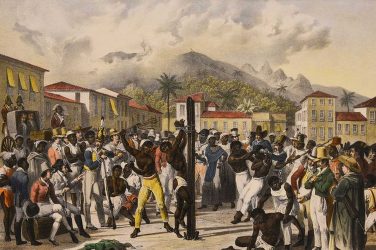Survey by Brazil’s Ministry of Foreign Affairs shows that there are near 20,000 micro and small registered businesses owned by Brazilians abroad. The majority is located in the United States.
Beans, cheese bread, coffee and tapioca are some of the products Brazilians miss when they move to another country. Some fellow countrymen turn this longing demand in businesses.
According to a survey conducted by the Ministry of Foreign Affairs (Itamaraty) made available this July 7, there are near 20,000 micro and small registered businesses owned by Brazilian throughout the world.
The United States host the majority of them, with 9,000, followed by Japan, with 1,500, and France, with 1,320.
The so called nostalgic market is the most traditional sector, specialized in selling homeland products to Brazilian communities abroad.
Besides food, clothing and other consumer goods, the businesses also include services such as beauty salons, gyms, and dance and capoeira schools.
Due to the expansion of this market, Itamaraty have planned action to encourage and support the micro and small entrepreneurs abroad.
As part of these planned measures, the ministry launched 16 guides, focusing on 13 countries, with specific guidelines of how to be a entrepreneurs in each location. Overall, Brazil has about 3.1 million nationals living abroad.
Work Permits
In the first quarter of 2017, the Brazilian government released 7,989 copies for foreigners of its Carteira de Trabalho, the employment booklet which makes it possible for a person to work in the country’s formal market.
Of these, 3,017 were issued for Haitians, 1,107 for Venezuelans, 443 for Cubans, 346 for Argentineans, 311 for Bolivians, 282 for Paraguayans, 250 for Colombians, 232 for Peruvians, 219 for Uruguayans, 190 for Senegalese citizens, among other nationalities.
According to official data, a significant number of these immigrants enter the country as refugees, but not all meet the requirements set by the Justice Ministry.
Such cases are normally submitted to the National Immigration Council (CNIg), which may grant foreigners permission to live in the country indefinitely.
Luiz Alberto Matos dos Santos, CNIg deputy coordinator, argues that, despite the increase in the amount of people coming into the country over the last five years, Brazil’s immigration rate is still low.
“It’s not even one percent of the population, compared to the global average of four percent,” he said. Most immigrants, he said, take up posts Brazilians are no longer interested in.
Labor Minister Ronaldo Nogueira says the new immigration legislation in Brazil is internationally regarded as one of the world’s most advanced. “Brazil plays an avant-garde role as it recognizes immigrants as an individual with rights, principles, and guarantees set forth by law.”
The work permits for foreigners in Brazil are granted by the Labor Ministry through CNIg. The permit is required by Brazilian consulate authorities, as part of the issuance of permanent or temporary visas to foreigners wishing to stay in Brazil to work.
Residence Deal
An agreement signed between Brazil and Uruguay was officially published July 7 allowing more people to move between the two countries, effective after 30 days of the ratification by each country’s congress.
Under this new agreement, Brazilians and Uruguayans may be granted permanent visas without length of temporary residency requirements. Applicants to permanent residency must present an identity document (e.g. valid passport, ID card, and nationality certificate issued by the consular authority of the home country).
Also required is a certificate or personal statement of absence of criminal or court liabilities in the home country or the residence countries in the five years prior to relocation to the target country, and an international personal statement with a similar clearance.
In Brazil, visa applications must be filed with a Brazilian consular office. Applications for permanent residency must be submitted to Federal Police or the National Justice Secretariat. In Uruguay, applications will be handled at the Uruguayan diplomatic office or at the National Migration Directorate.
The applications are fee-exempt and entitle successful candidates to work in the target country under the same conditions as those applicable to nationals, “subject to the domestic limitations of each party.”
ABr











